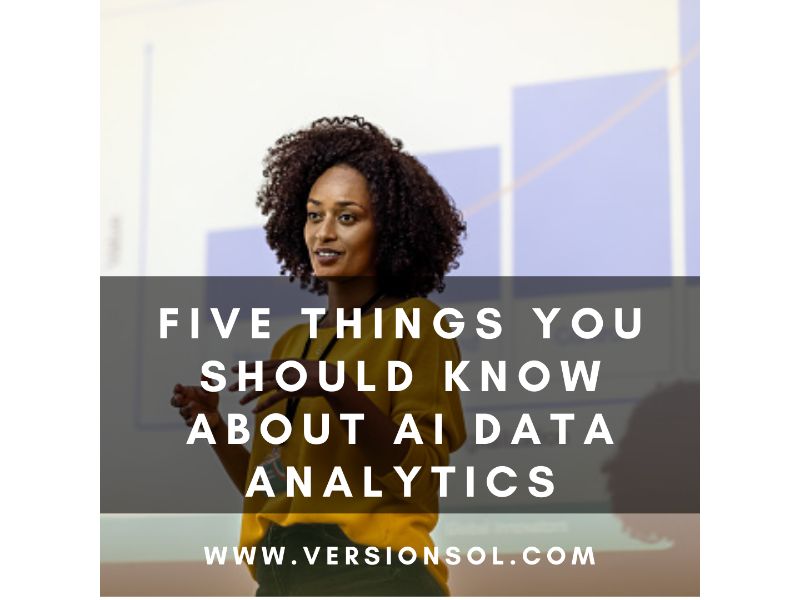AI data analytics is a vast topic of data science that encompasses any form of deep learning. This phrase frequently describes machines that mimic mental skills like learning, decision making, thinking, and visualization. AI may be helpful to study human languages, drive self-driving vehicles, playing games, and interpret information. Ai Analysis tools, search efficiency, and artificial neural networks are all examples of AI approaches to resolving problems.
Related: The future of AI
What does Artificial intelligence and data analytics entail?
Artificial intelligence (AI) analytics is a subset of business intelligence that employs a machine learning approach to reveal new trends in data. In reality, AI analytics is the process of automating most of the work traditionally performed by a data scientist. In real life, this implies that AI executes the procedures that people would take to conduct a thorough study. AI can examine every potential data combination to establish hierarchies of connections between distinct data sources far faster than a human can.
Advantages of AI data analytics for businesses?
One of the most important is AI data analysis, which involves the understanding of large amounts of data and expertise, as well as the finding of certain useful patterns in big data. It is a major invention that combines strategies and simulations from several research disciplines, such as data analysis, mathematics, statistics, machine intelligence, and expert computing, to effectively deal with massive data challenges.
The ability to interpret data
AI systems’ ability to interpret data intelligently provides numerous business benefits. One of the most important is lowering the employment costs of data analysts and other high-paid but limited analytics experts. Risk management is another advantage of employing AI in analytics. AI analytics can help risk management models work more effectively and create wiser solutions.
Innovative merchandise.
AI analytics technologies can perform big data analysis and can lead to improvements to existing products and the creation of new ones.
The supply chain amped up.
Distribution network managers focus on Data analysis as a disruptive technology. That allows organizations to use the information to address previously intractable problems.
Customer interaction and smart AI campaigns
Use AI analytics technologies to figure out what customers want and how to get them, keep them, and grow their loyalty. Marketing campaigns that work. Using AI information and existing consumer purchases, create focused and targeted campaigns.
